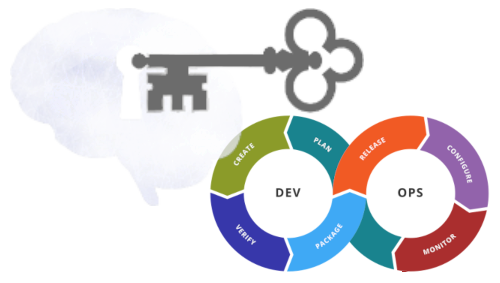Viewing Software Development as a Continuous Process

DevOps is a set of practices that emphasizes collaboration and communication between development and operations teams, with the goal of automating the software delivery process and reducing the time between code commit and production deployment. However, DevOps is more than just a set of tools and processes - it’s a mindset shift that requires organizations to rethink how they approach software development and delivery.
One of the key mindset changes needed for a successful DevOps transformation is to view software development as a continuous process, rather than a one-off project. Traditionally, software development has been treated as a project with a defined scope, timeline, and budget. Once the project is completed, the software is delivered to the customer, and the development team moves on to the next project. However, this approach has several limitations, such as:
- Lack of agility: Traditional software development projects are often rigid and inflexible, with little room for changes or adjustments once the project has started. This can lead to delays, cost overruns, and missed opportunities.
- Limited feedback: Because software development projects are typically a one-time event, there is limited feedback from customers and end-users on the software’s functionality, usability, and effectiveness. This can lead to a disconnect between the development team and the end-users, resulting in software that doesn’t meet their needs.
- Siloed teams: Traditional software development projects are often siloed, with little collaboration or communication between the development team and other stakeholders, such as operations, security, and business units. This can lead to a lack of alignment and a failure to deliver software that meets the needs of all stakeholders.
To overcome these limitations and enable a more agile, responsive, and collaborative approach to software development, organizations need to view software development as a continuous process, rather than a one-off project. This requires a shift in mindset from a project-centric approach to a product-centric approach, where software development is seen as an ongoing process of building, testing, and delivering software that meets the changing needs of customers and stakeholders.
Here are some key principles and practices of viewing software development as a continuous process:
- Emphasize continuous integration and delivery: Continuous integration and delivery (CI/CD) is the process of automating the build, test, and deployment of software, enabling teams to deliver code changes more frequently and reliably. By using CI/CD, development teams can catch and fix issues earlier in the development process, reducing the risk of defects and improving software quality.
- Prioritize customer feedback: To ensure that software development is aligned with customer needs, organizations need to prioritize customer feedback and use it to drive product development. This requires a shift from a project-centric approach, where the focus is on delivering a predefined set of features, to a product-centric approach, where the focus is on delivering value to customers through continuous feedback and iteration.
- Foster a culture of collaboration: To enable a continuous software development process, organizations need to foster a culture of collaboration and communication between development, operations, security, and other stakeholders. This requires breaking down silos and creating cross-functional teams that work together to deliver software that meets the needs of all stakeholders.
- Embrace experimentation and iteration: To enable continuous improvement and innovation, organizations need to embrace experimentation and iteration as a key part of the software development process. This requires a willingness to take risks, try new things, and learn from failure, with the goal of delivering software that is more effective, efficient, and user-friendly.
In conclusion, viewing software development as a continuous process, rather than a one-off project, is a key mindset change needed for a successful DevOps Mindset Transformation.